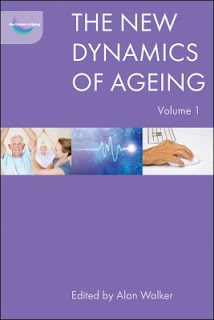Wednesday, 28 February 2018
Book chapter by Dr Stephanie King
Monday, 26 February 2018
Association of Advanced Practice Educators conference
£1.8 million investment - University of Hull and Castle Hill Hospital
A ground-breaking research centre to help doctors detect the early signs of three life-changing illnesses is being built at Castle Hill Hospital with an investment of £1.8 million from the University of Hull.
Building on the University’s high-calibre research which has resulted in new imaging technologies and inventions which have already instigated six patent applications, the Molecular Imaging Research Centre will be used to provide the diagnostic tools to help doctors identify the early signs of cancer, heart disease and dementia.
On Monday, a plaque was unveiled at the site for the £7.2 million research centre which is the result of a partnership between the Daisy Appeal, the University and Hull and East Yorkshire Hospitals, to translate scientific and medical research advances into clinical use.
Since it was established in 2000, the Daisy Appeal has raised £12.5m to fund cutting-edge research and state-of-the-art equipment and facilities. At Castle Hill Hospital, the charity has already built an £8m research centre, which opened in 2008, and the £4.5m Jack Brignall PET-CT Scanning Centre, which opened in 2014.
Professor Susan Lea, Vice-Chancellor of the University, said:
“Our investment in this pioneering facility demonstrates our support for local healthcare and is underpinned by the University’s commitment to improving the health of people in this region and beyond, through strong partnership with the NHS and the Daisy charity in this case.
“The centre will build on our existing links with the Jack Brignall clinical imaging centre at Castle Hill Hospital as well as our current work on internationally-recognised medical research programmes in this field.”
Steve Archibald, Professor in Molecular Imaging at the University of Hull, said:
“The new centre will enable us to translate new technologies and treatments into a clinical setting enabling doctors to provide earlier detection and better treatment for their patients.”
By determining the molecular make up of a tumour, doctors can tailor the treatment for an individual thus giving a greater chance of success.
“We have been working towards better outcomes for patients as a result of new diagnostic PET imaging technology for four years at the University. The PET Research Centre at the University of Hull campus has been carrying out translational scientific and biomedical research since 2014.”
Research CentreA ground-breaking research centreA ground-breaking research centreThursday, 22 February 2018
Differently Abled KC Stadium
 On Friday 9th February 2018, the Wellbeing Service and the Carers’ Information & Support Service joined forces to host an amazing event aimed at people who have learning disabilities and/or autism, carers, friends, family and staff. The event, titled ‘Differently Abled’, facilitated partnership working from a vast range of services and provision within Hull and East Yorkshire. The event involved Humber NHS Foundation Trust, East Riding Carers Service, Hull and East Riding Councils and Hull and East Riding CCGs.
On Friday 9th February 2018, the Wellbeing Service and the Carers’ Information & Support Service joined forces to host an amazing event aimed at people who have learning disabilities and/or autism, carers, friends, family and staff. The event, titled ‘Differently Abled’, facilitated partnership working from a vast range of services and provision within Hull and East Yorkshire. The event involved Humber NHS Foundation Trust, East Riding Carers Service, Hull and East Riding Councils and Hull and East Riding CCGs.Tuesday, 20 February 2018
Call-out for PCOS sufferers for a research study
Please see this link
A new research project at Hull York Medical School focusing on weight management in women with polycystic ovary syndrome (PCOS) is recruiting participants to trial the effects of different diets.
Polycystic ovary syndrome is the most common hormone condition in women of reproductive age, affecting up to 20 per cent women in this age group both globally and in the UK.
Obesity is one of the traits associated with the condition along with hirsutism (unwanted hair), oligmenorrhoea (infrequent periods), reduced fertility and increased incidence of type 2 diabetes and cardiovascular disease in women with PCOS
Thozhukat Sathyapalan, Professor of Endocrinology at Hull York Medical School, said:
“Several studies have reported that around 30-80% of women with PCOS are overweight or obese, with obesity often being associated with worsening symptoms and long term health effects.
“Diet and lifestyle changes to promote weight loss among obese women with PCOS can improve many aspects of the condition including fertility and the development of type 2 diabetes, although the effect of one particular weight loss diet remains largely unexplored.”
Tokophobia: what it’s like to have a phobia of pregnancy and childbirth
Tokophobia: what it’s like to have a phobia of pregnancy and childbirth



